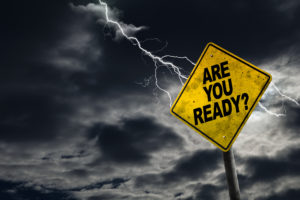You probably don’t realize it, but your home’s central HVAC system – provided it’s well-maintained and operating as intended – delivers important benefits for your family and home. Consider saying thanks this November as the holidays approach.
Following are some specific benefits that your home’s HVAC system provides:
Comfort
If your forced-air furnace, A/C or heat pump system weren’t maintaining a comfortable temperature and humidity, you’d be in trouble. Thankfully, the HVAC equipment, air distribution system and other complementary components ensure home comfort 24/7 year-round.
Energy Efficiency
Modern central HVAC systems operate more efficiently than ever, consuming the least amount of energy necessary to provide home comfort. It’s important, however, for the equipment to receive regular homeowner and professional maintenance; otherwise, energy efficiency will suffer. In addition, the air conditioner, furnace or heat pump can’t operate efficiently without effective home weatherization. This means proper insulation is necessary, and the home’s outer envelope must be sealed against air leaks.
Ventilation
As a result of tighter residential building practices over the past 20 years, homes today often require mechanical ventilation. Otherwise, air gets trapped inside, becoming stale and dirty. Exhaust fans in bathrooms and the kitchen are necessary, plus effective air exchange can be produced with a Heat or Energy Recovery Ventilator system. These systems exchange fresh outside air with dirty indoor air, with a minimal amount of energy loss.
Indoor air quality
Effective air cleaning is also a function of modern forced-air HVAC systems. This occurs with an energy-efficient air filter, and if necessary, a whole-house air-cleaning system.
Humidity control
In most homes, the HVAC system is charged with regulating both temperatures and humidity. Air that’s too dry or too damp can trigger or exacerbate health issues such as allergies and respiratory ailments. Localized humidity issues can be addressed with portable or room dehumidifiers/humidifiers, while whole-house systems are available for more pervasive issues with damp or dry air.
If your Broken Arrow area home falls short in any of these areas, please contact us at Air Assurance. We can make sure you have something to be truly thankful about.
Our goal is to help educate our customers in the Tulsa and Broken Arrow, Oklahoma area about energy and home comfort issues (specific to HVAC systems). For more information about your HVAC system and other HVAC topics, call us at 918-217-8273. Credit/Copyright Attribution: “TheDigital Artist/Pixabay”









